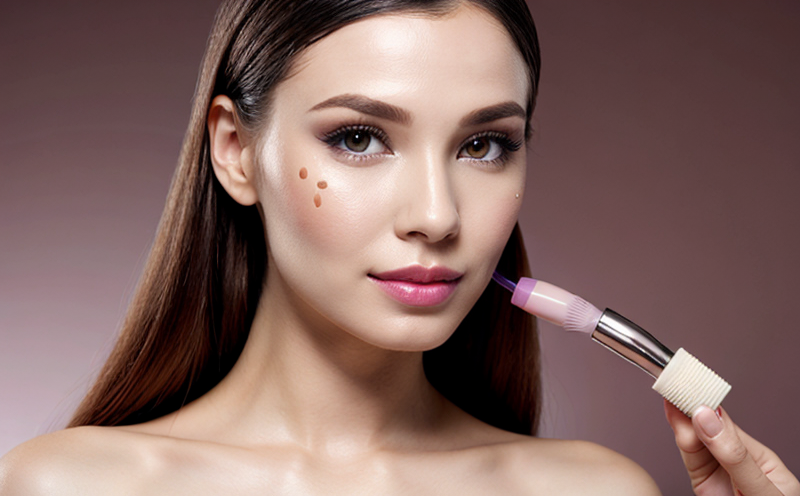In Vitro Developmental Toxicity Screening of Cosmetic Ingredients
The in vitro developmental toxicity screening (DTS) is a cutting-edge method used to assess potential risks associated with the use of cosmetic ingredients. This approach leverages advanced scientific techniques, including cell-based assays and computational models, to simulate the effects of ingredients on developing organisms without the need for animal testing.
Traditional methods of evaluating ingredient safety often rely heavily on animal experiments, which are not only time-consuming but also costly and subject to ethical concerns. In vitro DTS offers a more humane alternative by focusing on cellular-level interactions that closely mimic the biological processes in vivo. This method is widely recognized for its efficiency and accuracy, making it an essential tool in modern cosmetic development.
The process begins with selecting appropriate cell lines or tissue models that represent specific stages of embryonic development. These models are then exposed to various concentrations of the test ingredient under controlled conditions. The outcome is monitored through a series of biomarkers indicative of developmental toxicity, such as changes in cell morphology, gene expression patterns, and protein levels.
The testing protocol typically involves several steps:
- Selection of relevant cell lines or tissues
- Culture and maintenance of cells under controlled conditions
- Exposure to the test ingredient at different concentrations
- Assessment of cellular responses using various techniques like qPCR, Western blotting, and imaging analysis
The use of in vitro DTS not only enhances product safety but also accelerates the regulatory compliance process. Regulatory bodies around the world are increasingly favoring non-animal testing methods due to their ethical implications and reliability.
One significant advantage of this method is its ability to provide early identification of potential hazards, allowing cosmetic manufacturers to make informed decisions about ingredient selection and formulation adjustments. This proactive approach can lead to safer products while reducing the likelihood of costly recalls or market withdrawals.
Why It Matters
The development of cosmetics is a complex process that involves rigorous testing to ensure product safety, efficacy, and compliance with international standards. In vitro developmental toxicity screening plays a crucial role in this process by providing valuable insights into the potential risks associated with cosmetic ingredients.
By incorporating in vitro DTS early in the product development cycle, manufacturers can:
- Identify and mitigate potential safety concerns
- Avoid costly and time-consuming animal testing
- Enhance product safety while maintaining efficacy
- Meet regulatory requirements for non-animal testing methods
This method is particularly important in the context of global regulations, such as those enforced by the European Union’s Cosmetics Regulation (EC No 1272/2008), which mandates the use of alternative testing methods where possible. By embracing in vitro DTS, cosmetic companies demonstrate their commitment to ethical practices and regulatory compliance.
The increasing consumer demand for cruelty-free products further underscores the importance of this technology. Consumers are becoming more aware of animal welfare issues and prefer brands that prioritize humaneness and innovation over outdated testing methods.
Benefits
- Reduction in animal testing: In vitro DTS provides a reliable alternative to traditional animal-based toxicity tests, reducing the number of animals used in cosmetic safety assessments.
- Faster development process: The efficiency of this method allows for quicker identification and resolution of potential hazards, expediting product launch timelines.
- Cost savings: By eliminating the need for extensive animal testing, companies can reduce expenses associated with regulatory compliance and product development.
- Precision in results: Advanced cell-based assays offer high precision and reproducibility, ensuring consistent and reliable data across multiple batches of tests.
- Ethical considerations: The humane nature of this method aligns well with growing societal values regarding animal welfare.
- Enhanced product safety: Early detection of potential risks ensures that only safe ingredients reach the market, safeguarding consumer health and wellbeing.
Environmental and Sustainability Contributions
The transition towards non-animal testing methods like in vitro DTS contributes significantly to environmental sustainability. By reducing the need for animal-based experiments, this approach minimizes the carbon footprint associated with large-scale animal husbandry and transportation.
In addition to its ethical benefits, in vitro DTS also supports sustainable practices by fostering innovation in cosmetic development. The use of advanced cell cultures and computational models encourages a more efficient use of resources, including laboratory space and reagents. This aligns perfectly with the principles of circular economy and responsible resource management.
Furthermore, this method can help reduce the overall waste generated during product testing. Traditional animal tests often result in significant amounts of unused materials and by-products, whereas in vitro DTS generates minimal waste and requires fewer raw materials per test.





